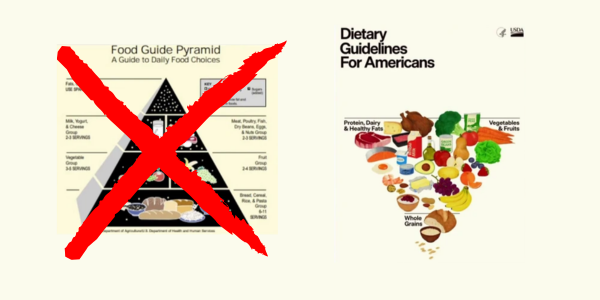



I was in New Zealand recently. I went specifically to my aunt’s 100th birthday. My aunt is mentally incredibly sharp with a memory better than most people, she is happy and still has purpose for living. Physically, she still gets around albeit with a walker. I hadn’t seen her for 5 years, so it was wonderful to have time with her and celebrate an incredible milestone. She comes from a line of longevity, my father died at 93, their sister at 92 and their mother at 95.
While I was in New Zealand I noticed the front page of a major newspaper declaring that New Zealand is considering allowing genetically-modified crops into their farming system. At this point, New Zealand has resisted GM crops, but now, as the article revealed, the country feels like it is behind the rest of the world and claimed GM crops to be safe, it was time to catch up with the rest of the modern world. I read their arguments and was dismayed that only one side was revealed.
Not only are GM crops an issue but also the chemical herbicides that these crops resist, thus allowing for widespread spraying on these GM crops. We have Jeffrey Smith coming out from the US for the 2025 Health and Nutrition Summit to speak about GM crops, glyphosate and synthetic biology. His book is Seeds of Deception: Exposing Corporate and Government Lies About the Safety of Genetically Engineered Food is a great read to educate yourself about synthetic biology.
Many crops are known as Roundup Ready GM crops. Roundup has an active ingredient called glyphosate. IARC, The International Agency for Research on Cancer, has called glyphosate a ‘probable carcinogen’. The manufacturer of Roundup is Monsanto who was purchased by Bayer. Bayer is now inundated with lawsuits. Since 2018, 165,000 people have filed suits against the product glyphosate causing Non-Hodgkins Lymphoma in humans. Just recently they lost a case that awarded the plaintive two billion dollars. There are still 59,000 cases to be heard, so far Bayer has paid out eleven billion dollars.
Bayer is now asking for immunity so that it cannot be sued for products used by consumers.
Just recently New Zealand food safety (NZFS) – a heavily industry funded regulatory body, wants to raise the MRL (Minimum Residual Limit) of glyphosate in wheat, barley and oats and dry field peas. Their argument is that residue levels in some food produced using ‘good’ agricultural practices exceeds the current default maximum.
NZFS first made the MRL when glyphosate products were first registered. This was not based on safety but rather based on expected residues. Now the residues exceed what was expected and NZFS want to increase the MRL one-hundred-fold from .1mg/kg to 10mg/kg converting this to parts per million, that’s from 0.1PPM to 10PPM. This increase in residual levels is possibly due to the fact more foods are being desiccated (dried and killed for easier harvesting) before harvest.
I’m not sure if they understand what 10PPM of glyphosate in the food supply can do to the health of an individual.
Glyphosate is not a benign chemical. It has multiple patents:
Consuming glyphosate in food or water, even at low doses, is like taking an antibiotic daily. At just 10 parts per million, glyphosate can:
The far-reaching affects include; a hostile microbiome punctuated with parasites and unwanted microbes, a reduced production of short chain fatty acids (SCFA) like butyrate (a crucial ingredient for gut health), an increase in lipopolysaccharides causing gut and blood-brain barrier weakness as well as bowel inflammation and a change in the amount of aromatic amino acids produced, which then convert to neurotransmitters, helping the nervous system both physically and mentally. Fructose malabsorption causing inflammation in the bowel is also a consequence of dysbiosis. These are just some of the things that can happen as we destroy the microbiome diversity.
Dr Stephanie Seneff from MIT has been a warrior investigator on glyphosate, and she plays a crucial pivot point in my documentary What’s With Wheat. When we think gluten is the problem it’s important to look at the heavy desiccation of wheat crops using glyphosate containing products, like roundup. Perhaps it is not gluten that is the problem but rather glyphosate causing a destruction of the microbiome and gut integrity. Thus the issue is not only, or necessarily, with gluten, but we see a rise in inflammatory bowel disease as well as sensitivities to histamine, fructose malabsorption (direct correlation with glyphosate), amines, salicylates, oxalates and other plant properties that should not be causing health issues and gut issues.
In Australia the MRL for glyphosate is set by AMVMA and FSANZ at 20mg/kg or 20PPM. I went to the FSANZ website on April 23rd, 2025, and read the following;
“Glyphosate is a herbicide which is registered for use in Australia to control a wide variety of leafy weeds. It controls weeds by inhibiting the activity of a plant-based enzyme which is not found in humans”.
This is not accurate; glyphosate inhibits the activity of microbe and plant-based enzymes. These microbes are found in humans; therefore glyphosate does affect the health of humans. And this is who is regulating our food and agriculture, yet they lie or don’t tell the entire truth to the Australian public on an official government website about the actions of glyphosate.
As well as the MRL, the APVMA also has created an ADI – Acceptable Daily Intake. In Australia the ADI for glyphosate is .3mg/kg, therefore if I’m 60 kg then 18mg of glyphosate is acceptable for my health every single day for the whole of my life.
The dilution rate for glyphosate over an acre is 340gms, this is enough to desiccate a crop that is non-GMO or kill weeds on land that is GMO over a whole acre. If I divide the land into a square foot, then I’ll need 7.8mg of glyphosate diluted down to do the same thing, desiccate or clear weeds. Yet for the human body, mine specifically, I’m told that 18mg per day is safe. The land is only sprayed once, but FSANZ believe that 18mg a day for me is safe. When you look at the figures it just doesn’t add up! Considering we know the glyphosate is a broad-spectrum antibiotic and it’s deemed that I can take 18mg every day for the rest of my life (that’s just over 2,000,000mg in my life time) without consequence, yet if I am prescribed an antibiotic, it is usually only taken for a period of time and the amount I take daily is around 250mg to 500mg for an adult or child over 40kg.
We have a surge in chronic disease both physically and mentally. Our microbiome plays a pivotal role in our health and wellbeing. perhaps it’s time to reconsider the MRL and ADI in Australia and perhaps New Zealand needs to fight against the use of GM crops and increase in their MRL for glyphosate from .1PPM to 10PPM. It’s just my opinion, but it’s worth thinking about. Here’s some other interesting information to consider:
Levels in Food and Concerns:
In summary, while the exact extent of the impact of glyphosate on the microbiome at 10 ppm is still being researched, there is evidence suggesting that it can lead to dysbiosis, reduced SCFA production, pro-inflammatory effects, and potential impacts on the neuro-immune-endocrine system, raising concerns about long-term health effects.
Glyphosate is controversial, it’s the whistleblowers like Dr Stephanie Seneff that have a strong case against it being used and put on our foods.
Australia’s regulatory bodies like APVMA and FSANZ are funded by industry in three ways:
Glyphosate alone, with 596 registered products, generates billions for regulators—making it unlikely they’ll act against its use. Financial conflict of interest is embedded in the system.
As long as our regulatory bodies continue to be funded by the industry then they will not speak out against these dangerous practices. Money is obviously a bigger incentive than safety of the Australian people. I sure hope New Zealand does not follow suit.
Cyndi



Do you have Doctor Merriment, Dr Sleep and Dr Diet in your life?

Learn how to read labels, understand sneaky ingredient terms, what to look for on packaging and more with our Introduction to Nutrition course. Enrol now!
↳ follow the link in our bio

Everything we do, think, feel and believe impacts our body in ways we don`t fully understand. How do you integrate body, mind and spirit in your life?

Isn`t it interesting, all of the terms we have for things that go on in the background of our lives? We don`t ever go `oh, our body is doing hormesis right now!`, instead it just happens in the background. Do you know any other fun terms like this that you know?

Nothing saves you money more than good health - put money in your pocket with The Nutrition Academy. Learn more about how to improve and nurture your health with our courses. Check them out online.
↳ follow the link in our bio

Valentine`s Day is approaching and if you don`t have a present for your loved one yet, consider making them a high-quality, healthy Valentine`s Day treat. Nothing is better than a delicious, healthy and luxurious treat.

This short clip is from Cyndi`s `Will Being Vegan Save the Planet?` and it`s an interesting look at the world of artificial foods. Should humans be eating that? Should dogs?

Looking to spend less time on social media but still want to keep up-to-date about what`s going on with The Nutrition Academy? Download passion.io in your app store and search for TNA Hub, then log in and keep up with us there!

What do you want to start doing now, to make a brand new, happier and healthier, ending?

Carotenoids are what makes your plate colourful and protect your cells from damage. They`re just one block of what makes up a healthy diet.

Change your life and the life of those you love with The Nutrition Academy.
↳ follow the link in our bio

If your 2026 goal includes eating more protein and/or eating healthier, make sure you know what you`re actually eating and how it affects your body.
